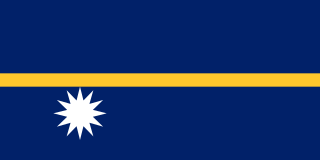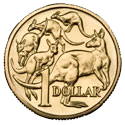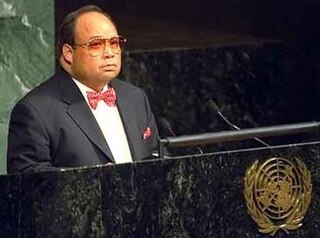| |||||||||||||||||||
All 18 seats of the Parliament of Nauru | |||||||||||||||||||
| |||||||||||||||||||
| |||||||||||||||||||
 |
|---|
| This article is part of a series on the politics and government of Nauru |
Parliamentary elections were held in Nauru on 24 April 2010, [1] following the dissolution of parliament by President Marcus Stephen on 16 March 2010. [2] The election was called due to repeated attempts to oust the government of Marcus Stephen in votes of no-confidence. There were 86 candidates, eight of them women. [3] Nauru uses a modified Borda count electoral system in eight multi-member districts. [4]

Nauru, officially the Republic of Nauru and formerly known as Pleasant Island, is an island country in Micronesia, a subregion of Oceania, in the Central Pacific. Its nearest neighbour is Banaba Island in Kiribati, 300 kilometres (190 mi) to the east. It further lies northwest of Tuvalu, north of the Solomon Islands, east-northeast of Papua New Guinea, southeast of the Federated States of Micronesia and south of the Marshall Islands. With only a 21-square-kilometre (8.1 sq mi) area, Nauru is the third-smallest state on the list of countries and dependencies by area behind Vatican City and Monaco, making it the smallest state in the South Pacific Ocean, the smallest island state, and the smallest republic. Its population is 11,347, making it the third smallest on the list of countries and dependencies by population, after the Vatican and Tuvalu.

Marcus Stephen is a Nauruan politician and former sportsperson who previously was a member of the Cabinet of Nauru, and who served as President of Nauru from December 2007 to November 2011. The son of Nauruan parliamentarian Lawrence Stephen, Stephen was educated at St Bedes College and RMIT University in Victoria, Australia. Initially playing Australian rules football, he opted to pursue the sport of weightlifting, in which he represented Nauru at the Summer Olympics and Commonwealth Games between 1990 and 2002, winning seven Commonwealth gold medals.
The Borda count is a family of single-winner election methods in which voters rank options or candidates in order of preference. The Borda count determines the outcome of a debate or the winner of an election by giving each candidate, for each ballot, a number of points corresponding to the number of candidates ranked lower. Once all votes have been counted the option or candidate with the most points is the winner. The Borda count is intended to elect broadly-acceptable options or candidates, rather than those preferred by a majority, and so is often described as a consensus-based voting system rather than a majoritarian one.











